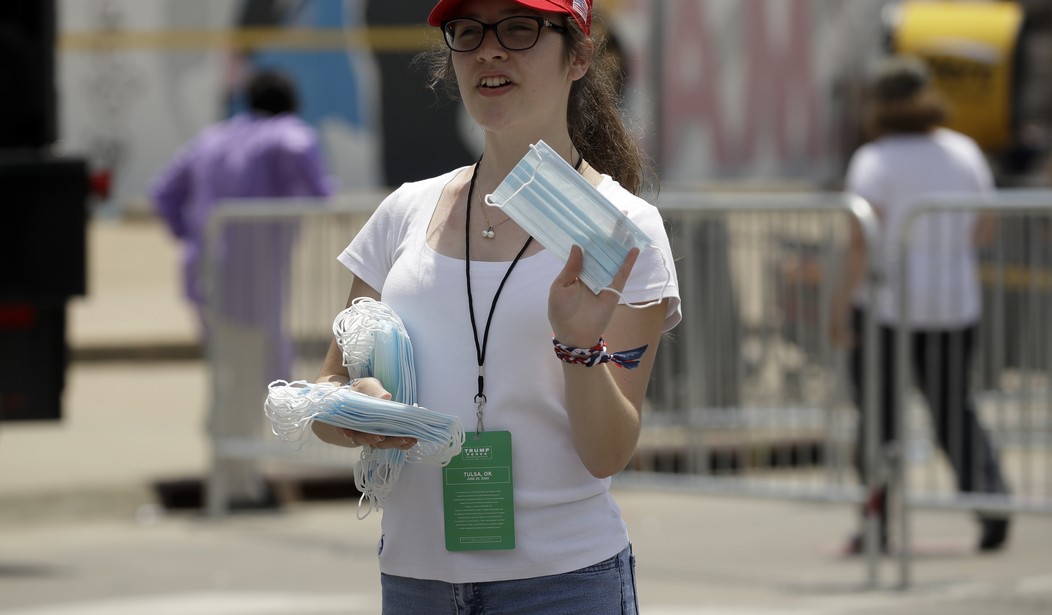About six months ago, the Age of the Great UnReason began to dawn. It brought with it the COVID Internment of America; the unabashed imperialism of Mask Empire, with its mandates that are as oppressive as they are ineffective; and the Corona Walker, a phenomenon that is at once as tragic as it is repellent.
The result has been incalculable devastation of every conceivable kind.
Recently, I had two conversations, one with a woman with whom I at one time had more than a platonic relationship, the other with my first cousin, who had always been more like a brother to me than a cousin. For reasons, I strongly suspect, that have less to do with a genuine fear of contracting a virus than either would be willing to admit, they were quick to dismiss my (demonstrably true, scientifically-based) claims that the hazardousness of COVID-19 has been wildly overblown and that masks for the general public are, at best ineffective and at worst, dangerous.
Despite my differences in worldview with both, I nevertheless had always respected their intelligence. I suppose I still do.
Yet intelligence, which is a raw, native endowment, and intellectual prowess, which is every bit as much a developed skill set as any other, are most emphatically not one and the same thing.
What is critical thinking and how can one become a critical thinker?
For starters, and most fundamentally, critical thinking is tough. It is eminently laborious, demanding thousands and thousands of hours, over the span of years and decades, of reading; writing; introspection; reflection; and analyzing, rigorously analyzing, arguments, both those that support one’s own point of view and, crucially, those that are designed to counter it.
Recommended
Perhaps as important as any other requirement, critical thinking demands courage, the guts to risk defying the conventional wisdom, the prevailing dogma.
The critical thinker, though, because he is all about following the argument, must know the differences between the various species of discourse with which it is typically conflated. This, of course, demands that he first be familiar with the basic structure of an argument. He needs to further know the differences between deductive and inductive reasoning, between the concepts of validity and invalidity; soundness and unsoundness; strong and weak; cogent and uncogent.
The critical thinker should as well be acquainted with at least some of the more common logical fallacies that Aristotle, “the Father of Logic,” identified over 2300 years ago.
Take, for just one instance, a specific variety of the ad hominem attack known as “circumstantial.” This fallacy is routinely committed by the True Believers of the Mask Imperium against those who dare challenge both its decrees as well as “the Science” in the name of which those decrees are rationalized: “Well, you’re not a doctor!” Or, if the person actually is a medical doctor, the very fact that he or she dissents from the orthodox position of Big Science (government-funded, bureaucratic and quasi-bureaucratic hacks with doctorate degrees) is taken as proof that he or she is a quack.
This is flagrantly fallacious reasoning, for a person’s circumstances are logically irrelevant to whether their point of view is correct or not (And we can, for now, sidestep the fact that the Mask Imperialists aren’t deterred in the least from speaking with the authority of an Old Testament prophet by the fact that neither are they doctors!).
Most obviously—or at least it should be—the critical thinker needs to appreciate the basis of all thought, the Principle or Law of Contradiction. He must know, in other words, that a thing can’t both be and not be in the same sense and at the same moment. “A and not-A” is a necessarily false statement, false in every conceivable world, for it is a logical impossibility and whatever is logically impossible is unthinkable.
The critical thinker knows, then, that the statement, “Masks shouldn’t be worn by the public because they are essentially ineffective in preventing people from contracting ‘The Virus’ and masks must be worn by the public because they are effective in preventing people from contracting ‘The Virus’” is no less self-contradictory than the proposition, “She is pregnant and she is not pregnant.”
Critical thinking is not for the faint of heart. In the next installment of this series, we will delve more into this subject by considering the differences between the Critical Thinker and…the Feelers.























Join the conversation as a VIP Member